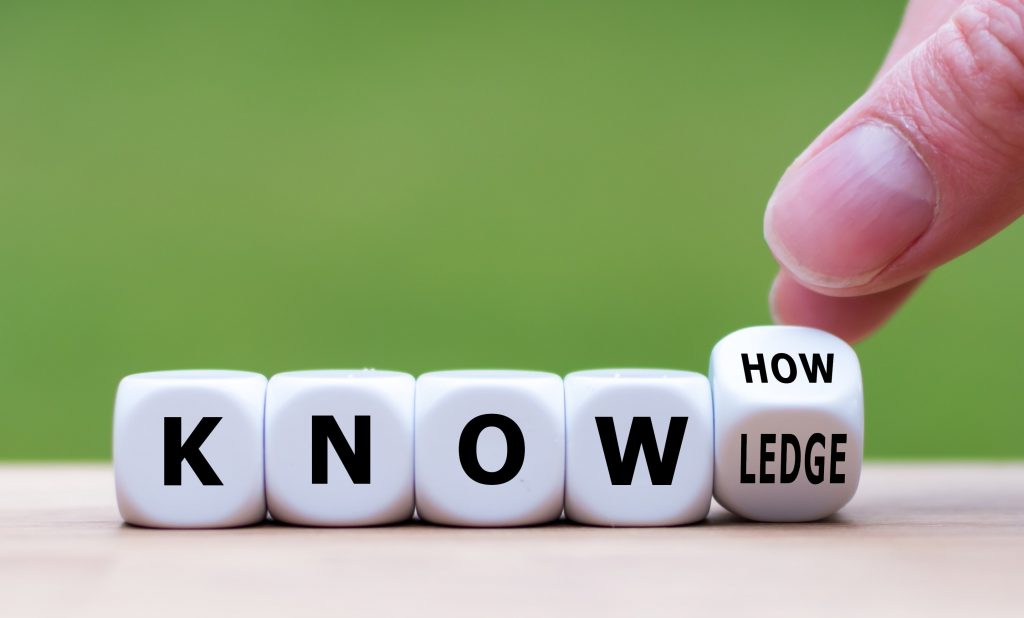
The range Coaching covers a broad spectrum. Agile Coaching is mainly used by companies and similar organizations. Nevertheless, an Agile Coach is not a management consultant. Instead of presenting the client with ready-made solutions, the Agile Coach encourages the client to fundamentally examine internal processes and modify them if necessary.
Helping the client to help themselves is the core idea of any form of coaching. However, in order to become an Agile Coach, there are other specific requirements that must be met. If you want to learn what exactly an Agile Coach does and whether this career would be something for you, then read the following article carefully.
In our fast-moving times, companies must constantly adapt in order to survive on the market. Corporate concepts that have supposedly proven themselves can become obsolete overnight. Those who do not react flexibly will literally fall by the wayside. Agile Coaching addresses precisely this problem.
An Agile Coach helps companies stay adaptable and flexible.
To achieve this, it is necessary to critically question existing structures within a company:
It is important to mention that an Agile Coach does not prescribe anything. He merely gives suggestions. You might be wondering right now if it wouldn't be better if the coach told you very clearly what to do? Sure, that would be more convenient for the client, but not half as effective. We're also happy to explain why:
A specific instruction may help to solve a current problem. However, if the core problem lies in the company structure, problems will arise again in the future. If the entrepreneur deals with the core of the difficulties, success is much more sustainable.
Agile Coach translates as "agile coach". Agile in the German language is an expression for agility and great mobility. This translation describes quite aptly what distinguishes the Agile Coach: He provides flexibility and adaptability.
By the way, the term Agile Coach has not been around for very long. The concept "Agile Manifesto" was created in 2001 in Snowbird, in the US state of Utah. Instead of "agile", there was a choice between the terms "flexible" and "adaptive". In the end, however, it was decided that the term "agile coach" best described the activity.

The tasks of an Agile Coach can be very diverse. His activities include, for example, the following areas:
In the following, we would like to take a closer look at the individual areas of responsibility:
At the beginning of the collaboration, the Agile Coach first takes an observing position. This is necessary to get a complex picture of the company and its structures. The coach then communicates his observations to his client in an appreciative manner. He holds up a mirror to the client, so to speak. The client is given the opportunity to reflect on himself.
The focus of the observations is primarily on the agility of the company. The goal is to identify entrenched structures that do not offer added value (anymore). It is important that the client understands why certain things need to be changed. Only in this way can a long-term rethinking take place.
If required, the Agile Coach can take on the role of a trainer to provide theoretical and practical training to the client and their staff on essential topics. These include, for example:
The training is designed to be interactive. This means that all participants complement and interact with each other. The topics also build on each other. The transfer of expertise as well as the guidance for practical implementation in the form of a training can help to optimize agility in the company.
Whoever hires an Agile Coach wants to change something in their company. The coach accompanies his client through this process. The step towards agility in a company is often accompanied by a restructuring of the management hierarchies. A agile company employs motivated staffwho are given a certain amount of freedom to make their own decisions.
Agile coaching is designed to guide employees to achieve a greater level of Assume responsibility. More Personal initiative, fewer instructions from above: This is an essential factor of agility. However, this does not mean that leaders remain passive. Quite the opposite: They learn at system, instead of at System to intervene.
However, new opportunities and greater responsibility can also raise doubts and fears. The Agile Coach shows the employees how they learn to deal with this. The goal of Agile Coaching is that the prospect of the new possibilities and successes makes fears and doubts recede into the background.
In large companies, the organizational structure is naturally more complex than in small companies. By organizational structure is meant the hierarchies, role and team definitions. Related to all this are responsibility and salary structures, budget planning processes and incentive systems.
If an imbalance occurs in a large company, in one of the areas just mentioned, it requires a greater effort to identify and correct the cause than would be the case in a smaller company. In small companies, people usually know each other. It is easier to clarify anomalies in a direct conversation.
The task of the Agile Coach is to provide his client with an overview of the following aspects:
Admittedly, the term "experiment" may sound a bit reckless at first. Nevertheless, it is important to test changes in practice before firmly establishing them. In this way, a learning process is set in motion. Together with his client, the Agile Coach creates the concept of how changes can be tested.
Basically, it remains with the client which suggestions of the coach he implements. This Personal responsibility is desired and important in Agile Coaching. Nevertheless, the coach can act as a mentor or role model for a limited time. Through role models, the coach introduces his client or the employees to different perspectives within the company.
Especially in the initial phase of the collaboration, it may be desirable for the coach to make concrete suggestions to his client. These are not conveyed as instructions, but are always discussed in a personal conversation. However, the presentation of concrete proposals for solutions should not dominate Agile Coaching. Otherwise it misses its effect.
Facilitation means "easing". The coach supports his client in solving problems of a more serious nature. Especially in times of corporate restructuring, unforeseen problems or conflicts can arise quickly.
Especially at the beginning of the agile transition, it can happen that the leaders disagree on which measures to implement. The Agile Coach supports the group in finding a common path.

As an Agile coach, you can't be afraid to put your own Leave comfort zone. For example, you need to be able to point out to your client any wrongdoing within their company. Asking someone questions that they may find uncomfortable can be met with rejection. An Agile Coach should therefore have a strong personality.
In addition to character traits, as an Agile Coach you should of course also have the necessary technical expertise. You should master the following four basic skills:
Furthermore, you should deepen your knowledge in one or all of the following three disciplines:
Most Agile Coaches have first completed training as a Scrum Master or Product Owner. Basic knowledge in these areas is a great advantage. Therefore, it is a good opportunity to build on this with the training to become an Agile Coach. Whether corresponding prior knowledge is required varies depending on the training provider.
Be aware of the fact that a (serious) training as an Agile Coach cannot be completed in one weekend. The scope of activities is so extensive that you usually have to invest several months. Whether further requirements have to be met (e.g. a minimum age) also depends on the provider. The training costs also vary greatly.
Unfortunately, there are many black sheep on the market. The term Agile Coach is not legally protected. When choosing your training, make sure you know exactly what it covers and which certificate you will receive. Cost transparency is also important so that you don't get any nasty surprises. A good option is, for example, the IHK training course, at the end of which you will receive a recognised certificate.
Most training courses focus on a particular area. Depending on where this focus lies, your later possibilities will open up. Therefore, you should already think about where you would like to work as an Agile Coach later on. The following possibilities exist:
Unlike many other coaches, the Agile Coach works exclusively in companies. Private individuals cannot make use of him. This would make little sense in view of the areas of activity of an Agile Coach. Therefore the topic Business interested. If you prefer to coach people in the private sector, you should think about another training.
As an Agile Coach, you do not necessarily have to work for other companies. You can just as easily train to become an Agile Coach if you yourself are a managing director or senior executive of a company. You should definitely consider this aspect when choosing a training course. As Managing Director you should think about training your Agile Coaches internally (in-house training).
This offers several advantages:
If you want to learn more about agile methods, the following article might be interesting for you: https://greator.com/agile-methoden-so-lassen-sich-projekte-agil-fuehren/.
The distinction between Agile Coach and Scrum Master is interpreted differently. Sometimes the two areas are even equated or confused with each other. In fact, many tasks overlap. That is why we would like to clarify the existing differences at this point.
One major difference is that the Scrum Master focuses on the team he is coaching. The Agile Coach, on the other hand, deals with the entire organization of a company. He accompanies all change processes and accordingly acts more often on higher organizational levels (exchange with management and stakeholders), while the Scrum Master mainly acts on the team level.
In addition, the Agile Coach uses several instruments to accompany a transformation process. Scrum can be a component of this, but it is not the only option.
Once you have established yourself as an Agile Coach, you can expect to earn a very lucrative salary. The minimum salary is €52,200 per year. On average, Agile Coaches in Germany earn around €60,700 per year. Those who earn above average can look forward to an annual salary of around €71,600.
The difficulty is to first make a name for yourself so that companies will book you. At the beginning of your career, you face a classic challenge that affects all self-employed people: if no one knows you, you won't get any orders.
This can be remedied by building up a network of colleagues, supporters and potential clients during your training. Network as much as possible. Look for contacts to experienced Agile Coaches who have been working in the industry for a long time. Let them inspire and advise you.

You can complete the Agile Coach training both online and in a classroom course. Both have their advantages and disadvantages. Ultimately, the decisive factor is what can be best integrated into your everyday life. Online training offers the advantage of flexibility in terms of location and, if applicable, time. If you are a full-time professional, online education may be the only option available.
There are online trainings where you can schedule the modules freely. As soon as you have completed one module, you start the next one. How long you need for this is up to you. Depending on the provider, the modules consist of written teaching material and/or teaching videos. At the end of each module, there is usually a test to check whether you have understood the content.
There are also online trainings based on regular meetings (e.g. via Zoom). In this case, you are flexible in terms of location, but you must adhere to the Zoom deadlines. If you opt for face-to-face training, you will not have this flexibility, but you will benefit from face-to-face interaction. The latter cannot be completely replaced by online meetings.
As mentioned before, it is a great advantage to already have some coaching experience if you decide to train as an Agile Coach. Our in-depth Greator Coach training offers the ideal basis for this.
During the Greator Coach Training you will deal intensively with your emotions, Beliefs and behavioral patterns. To steadily promote your personality development and your own Life goals are the main characteristics of a good coach. In our training we give you the appropriate tools for this.
The Greator Coach training takes a total of 9 months and consists of 2 modules: the 3-month Greator Coach Practioner and the 6-month Greator Coach. According to successfully completed final exam you are a certified Greator CoachThis will open many doors for you in the coaching industry, including further training as an Agile Coach.
The Greator Coach Training allows you maximum flexibility in terms of time and location. It is therefore perfect for working professionals. You will receive weekly high-quality online coaching videos, in which we teach you the topics and methods in a varied way. To repeat and consolidate what you have learned, you will receive a weekly digital workbook with a variety of tasks.
Would you like to learn more? Then come and visit us

